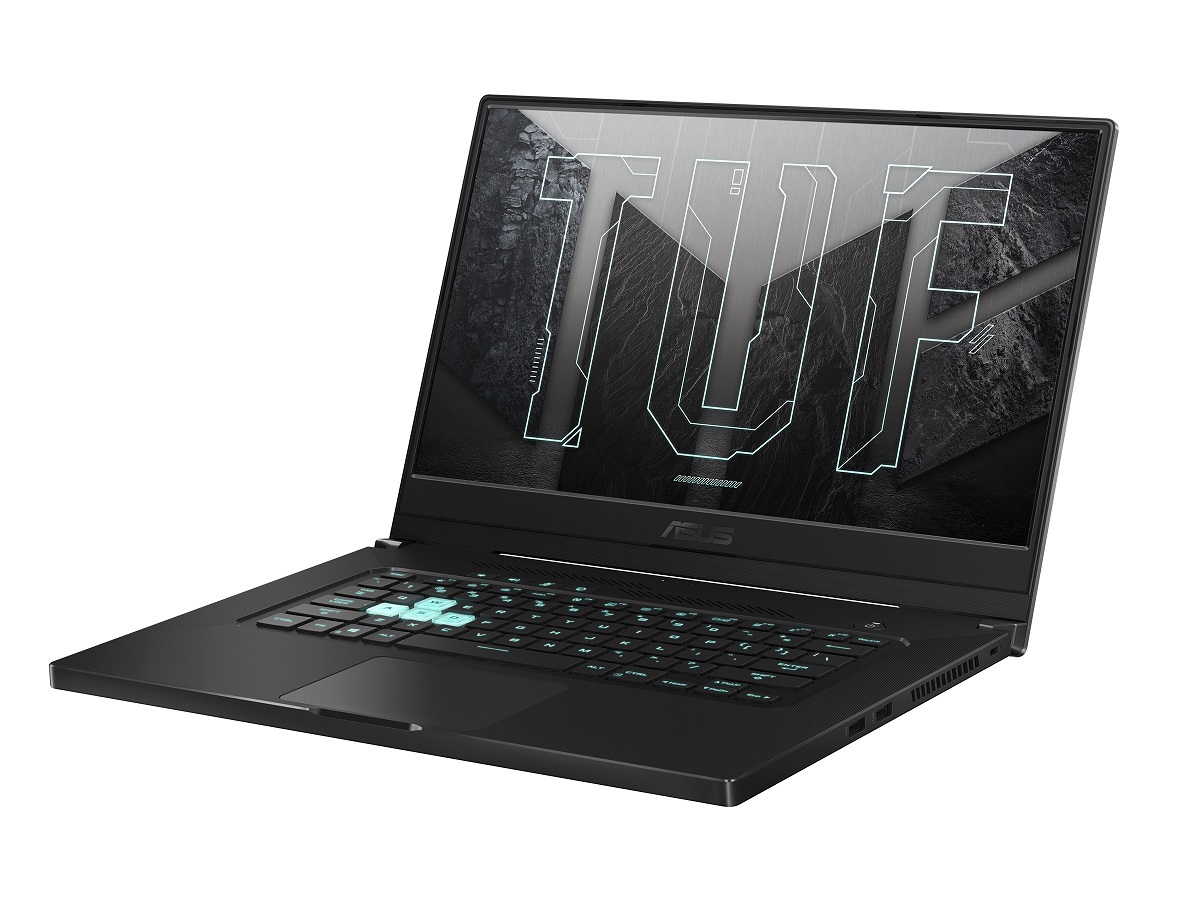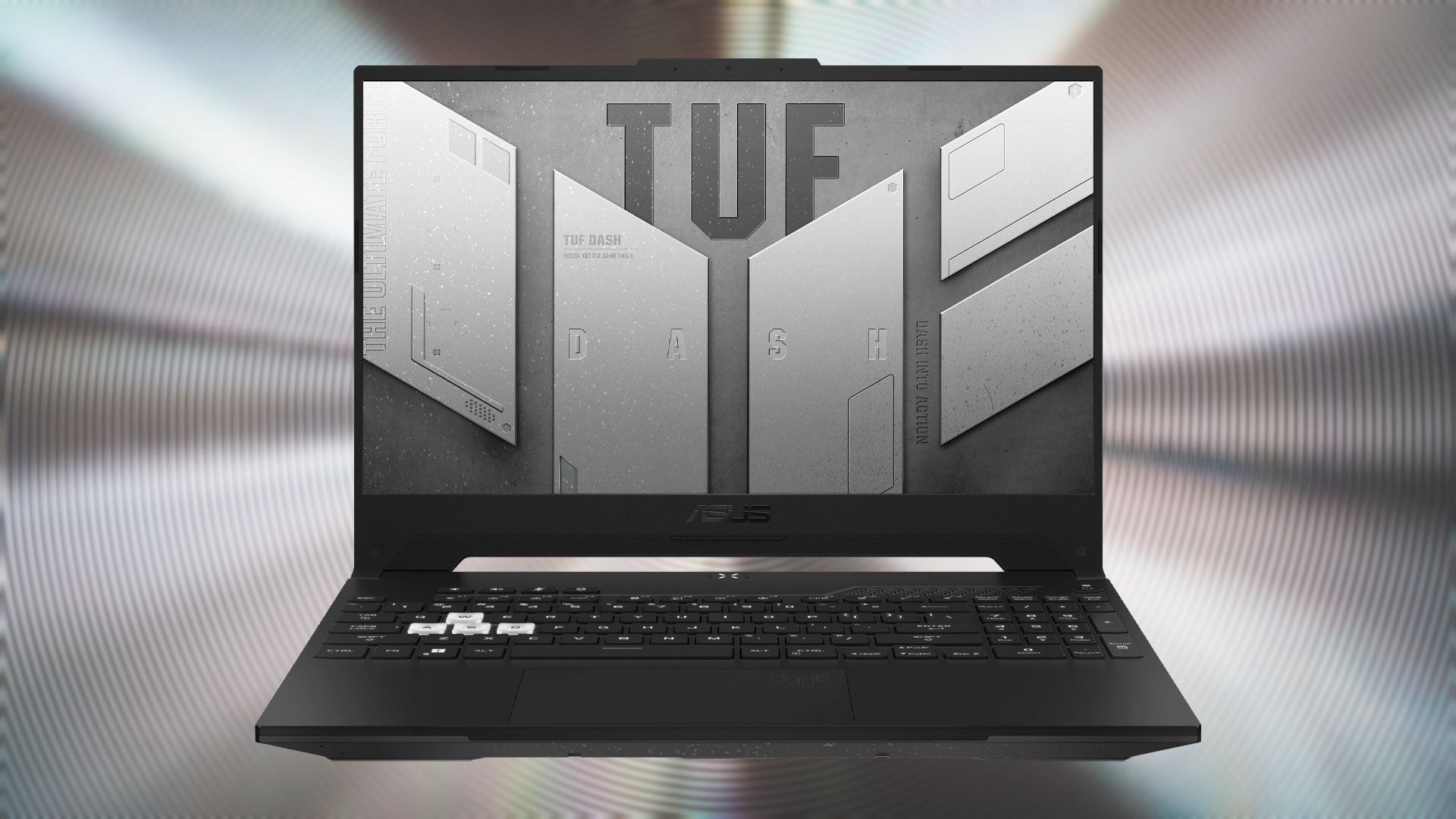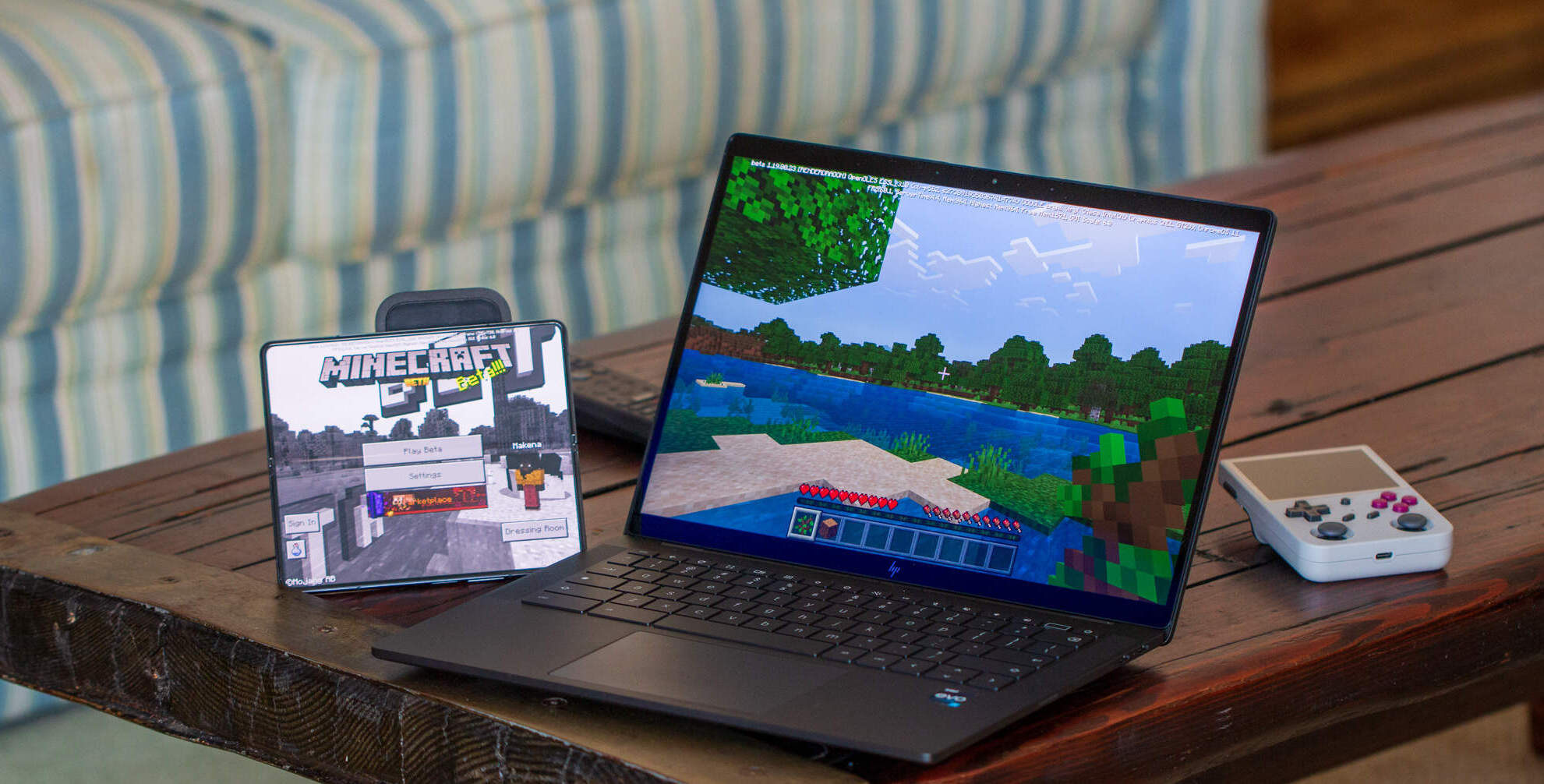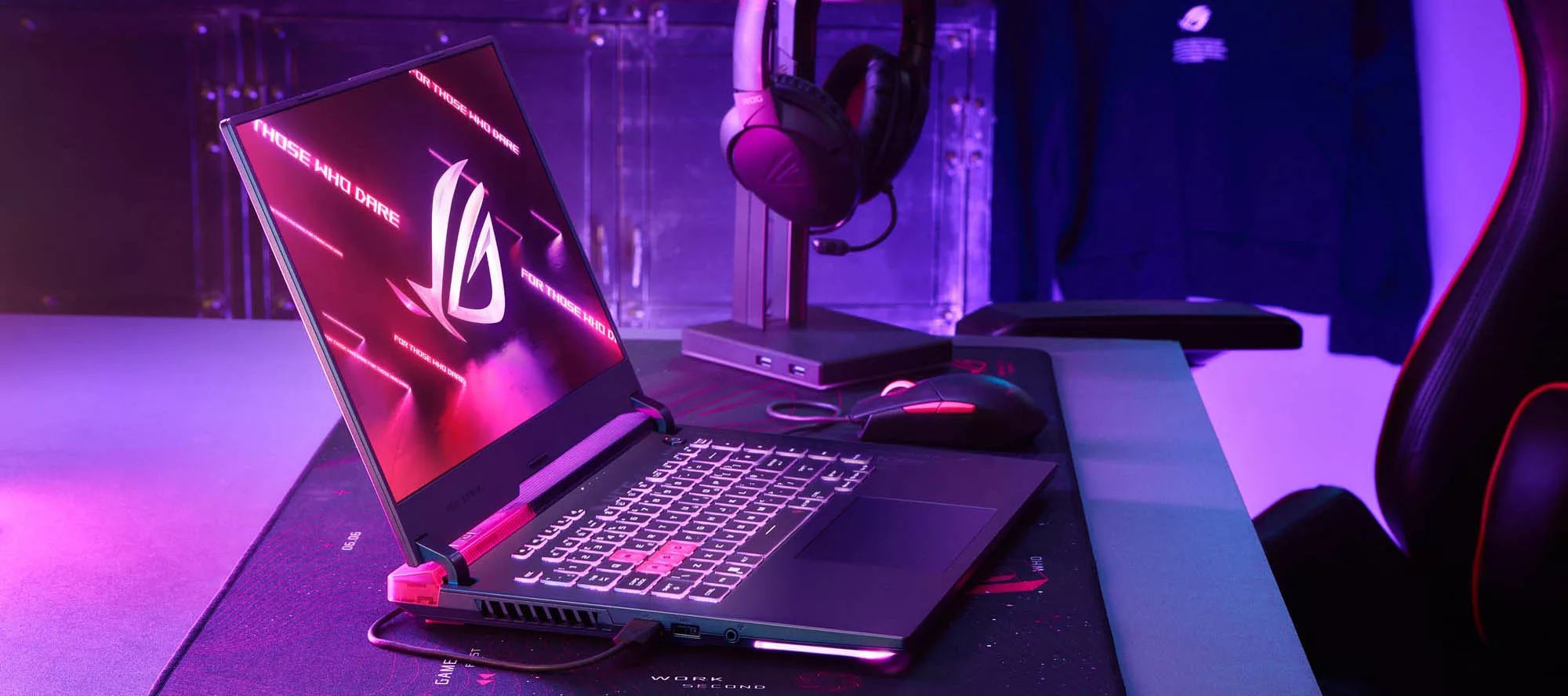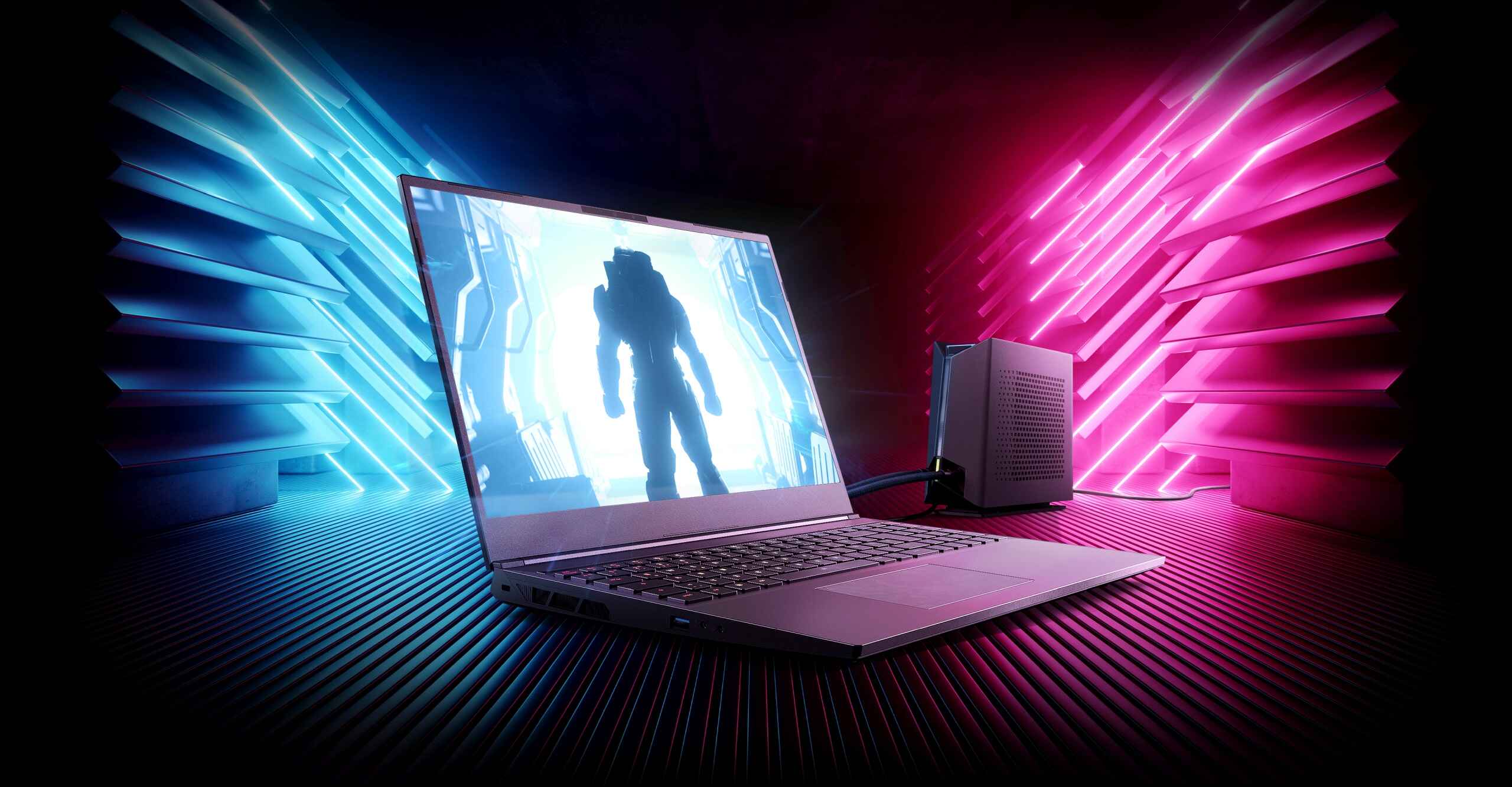Choosing the Right Processor
When it comes to gaming laptops, selecting the right processor is crucial. The processor, also known as the central processing unit (CPU), is the brain of the computer and plays a significant role in determining overall performance.
One of the main factors to consider when choosing a processor is its clock speed, measured in gigahertz (GHz). A higher clock speed indicates faster data processing and can lead to improved gaming performance. However, it’s important to note that high clock speeds aren’t the only thing to consider.
Multi-core processors are becoming increasingly popular in gaming laptops. These processors have multiple cores that allow for efficient multitasking and improved performance in resource-intensive games. Look for processors with at least four cores for a better gaming experience.
Another important aspect to consider is the processor’s cache size, which is where the CPU stores frequently accessed data. A larger cache can help improve performance as the processor can quickly retrieve data, resulting in smoother gameplay.
It’s also worth considering the brand and model of the processor. Companies like Intel and AMD offer a range of processors specifically designed for gaming laptops. Research and compare the performance benchmarks of different models to ensure you’re selecting a processor that meets your gaming needs.
Lastly, keep in mind the power consumption of the processor. Gaming laptops are known to drain battery life quickly, so opting for a processor with efficient power management features can help extend battery life for longer gaming sessions on the go.
In summary, choosing the right processor for your gaming laptop involves considering factors such as clock speed, core count, cache size, brand, and power consumption. By carefully evaluating these aspects, you can ensure that your gaming laptop is equipped with a processor that delivers optimal performance for an immersive gaming experience.
Selecting the Best Graphics Card
When it comes to gaming laptops, the graphics card is one of the most important components to consider. The graphics card, also known as the GPU (Graphics Processing Unit), is responsible for rendering the visuals and graphics in games.
One of the key factors to look for when selecting a graphics card is its performance capabilities. Different games have varying graphical requirements, so it’s essential to choose a graphics card that can handle the games you intend to play. Look for a graphics card with a high number of CUDA cores or stream processors, as this indicates greater processing power and better performance.
Another crucial consideration is the amount of Video RAM or VRAM available on the graphics card. VRAM directly affects the resolution, textures, and overall visual quality of games. Opt for a graphics card with a generous amount of VRAM to ensure smooth gameplay with high-quality graphics.
The cooling solution of the graphics card is also worth considering. Gaming can put a significant strain on the GPU, causing it to heat up quickly. Look for graphics cards with efficient cooling systems, such as dual or triple fan configurations, as these can help maintain lower temperatures and prevent overheating during intense gaming sessions.
Furthermore, it’s important to pay attention to the power requirements of the graphics card. High-performance GPUs tend to consume a significant amount of power, which can impact battery life and the overall power consumption of your gaming laptop. Ensure that your laptop’s power supply can handle the requirements of the graphics card you choose.
Lastly, consider future-proofing your gaming laptop by opting for a graphics card that supports technologies such as Ray Tracing and DLSS (Deep Learning Super Sampling). These technologies can significantly enhance the visual quality and realism of games.
In summary, selecting the best graphics card for your gaming laptop involves considering factors such as performance capabilities, VRAM, cooling solutions, power requirements, and support for advanced technologies. By carefully evaluating these aspects, you can ensure that your gaming laptop is equipped with a graphics card that delivers optimal visual performance for a truly immersive gaming experience.
Opting for Sufficient RAM
When it comes to gaming laptops, having sufficient RAM (Random Access Memory) is vital for optimal performance. RAM allows your laptop to quickly access and store data, including game files and assets, while running multiple tasks simultaneously.
One of the primary considerations when selecting the amount of RAM for your gaming laptop is the minimum requirements of the games you plan to play. Many modern games recommend at least 8GB of RAM, but for a smoother experience and future-proofing, it’s wise to opt for 16GB or even 32GB of RAM if your budget allows.
In addition to the amount of RAM, it’s important to consider the RAM’s speed, measured in megahertz (MHz). Higher RAM speeds can result in faster data transfer, leading to improved gaming performance. However, it’s worth noting that the performance gains from higher RAM speeds may not always be significant, and the increase in cost may not be justified for casual gamers.
The type of RAM is also a factor to consider. DDR4 RAM is currently the standard for gaming laptops, offering faster speeds and lower power consumption compared to its predecessor, DDR3. Ensure that the laptop you choose supports DDR4 RAM and provides sufficient slots for future upgrades if needed.
In addition to gaming, if you intend to use your laptop for other resource-intensive tasks such as video editing or graphic design, opting for higher amounts of RAM can provide a smoother and more efficient workflow for these applications as well.
Remember that having sufficient RAM goes beyond just gaming performance. It also contributes to overall system responsiveness and multitasking capabilities. Having more RAM allows your laptop to handle multiple applications simultaneously without experiencing slowdowns or performance bottlenecks.
In summary, opting for sufficient RAM in your gaming laptop is crucial for smooth gameplay, multitasking capabilities, and future-proofing. Consider the recommended requirements of the games you plan to play, aim for at least 16GB of DDR4 RAM, and assess your budget and overall needs to strike the right balance between performance and cost.
Considering Storage Options
When it comes to gaming laptops, choosing the right storage options is crucial for both performance and convenience. There are different types of storage solutions available, each with its own advantages and considerations.
The first consideration is the primary storage, often referred to as the boot drive or system drive. Solid State Drives (SSDs) are highly recommended for gaming laptops due to their faster read and write speeds compared to traditional Hard Disk Drives (HDDs). SSDs provide quicker loading times for games, faster file transfers, and overall snappier system performance.
It’s advisable to choose a gaming laptop with an SSD as the primary storage solution. Opt for SSDs with high capacities, such as 500GB or 1TB, to accommodate your games, operating system, and other applications.
In addition to the primary storage, having secondary storage options can be beneficial. HDDs offer larger storage capacities at a more affordable price per gigabyte. They are suitable for storing media files, such as movies, music, and game installations that are less frequently accessed. Consider a gaming laptop with a combination of SSD and HDD, allowing you to enjoy the benefits of both speed and ample storage space.
Upgrading storage in a gaming laptop is not always an easy task, so it’s essential to consider your future needs when selecting storage options. If you anticipate your storage requirements increasing over time, opt for a laptop with additional slots or the possibility of upgrading the storage options in the future.
It’s worth noting that some gaming laptops come with an M.2 slot, which allows for the insertion of an NVMe (Non-Volatile Memory Express) SSD. NVMe SSDs offer even faster speeds compared to traditional SATA-based SSDs. If high-speed data transfer is a priority for you, consider a gaming laptop that supports NVMe SSDs.
Lastly, consider the importance of backup solutions. Gaming laptops, like any other electronic devices, are prone to failures and data loss. Investing in an external hard drive or cloud-based backup services can help safeguard your important game saves, files, and personal data.
In summary, when considering storage options for your gaming laptop, prioritize SSDs for primary storage to enjoy faster performance. If you require additional storage space, consider a combination of SSD and HDD options. Keep in mind future storage needs, the possibility of upgradability, and consider implementing backup solutions to protect your valuable data.
Focusing on the Display
When it comes to gaming laptops, having a high-quality display is essential for an immersive gaming experience. The display not only determines how your games look but also plays a crucial role in your overall gaming performance. Here are some key factors to consider when focusing on the display of your gaming laptop.
The first consideration is the display size. Gaming laptops typically come in various sizes, ranging from 13 to 17 inches. A larger display size allows for a more immersive gaming experience, but it also makes the laptop bulkier and less portable. Consider your preferences and priorities when choosing the display size that suits your needs.
Another crucial aspect to consider is the display resolution. Higher resolutions, such as Full HD (1920×1080 pixels) or even 4K (3840×2160 pixels), provide sharper and more detailed visuals. However, keep in mind that higher resolutions also require more graphics processing power. Ensure that your graphics card can handle the resolution you choose without sacrificing performance.
Refresh rate is another important factor to consider. The refresh rate refers to how many times the display refreshes per second and is measured in Hertz (Hz). A higher refresh rate, such as 120Hz or 144Hz, offers smoother and more fluid visuals, particularly in fast-paced games. If you prioritize smoothness and responsiveness in your gameplay, opt for a gaming laptop with a higher refresh rate display.
Response time is another critical factor, especially for gamers who play competitive or fast-action games. Response time refers to how quickly the pixels on the screen can change from one color to another. A lower response time, typically measured in milliseconds (ms), results in less motion blur and improved clarity during fast movements in games.
Consider the display technology as well. In-plane switching (IPS) panels offer wider viewing angles and better color accuracy, making them suitable for those who prioritize color-rich and detailed visuals. Twisted nematic (TN) panels, on the other hand, offer faster response times, but they may compromise on viewing angles and color accuracy.
Additional features like anti-glare coatings and support for technologies like HDR (High Dynamic Range) can further enhance your gaming experience by reducing screen glare and improving color contrast.
Remember to consider your gaming preferences and priorities when choosing the display for your gaming laptop. A high-quality display can greatly impact your gaming experience, whether it’s enjoying crisp visuals, immersing yourself in the game world, or having a competitive edge with responsive visuals.
Prioritizing Keyboard and Touchpad
When it comes to gaming laptops, the keyboard and touchpad are often overlooked but play a crucial role in providing a comfortable and responsive gaming experience. Having a well-designed keyboard and touchpad can significantly enhance your gaming performance and overall user experience. Here are some aspects to consider when prioritizing the keyboard and touchpad on your gaming laptop.
The keyboard is a vital component for gaming, as precise and quick key inputs are essential for gameplay. Look for gaming laptops that feature keyboards specifically designed for gaming, with features like anti-ghosting and n-key rollover. Anti-ghosting prevents input conflicts when multiple keys are pressed simultaneously, while n-key rollover ensures that each key press is accurately registered. These features are particularly important for games that require complex key combinations and rapid inputs.
Consider the key travel and actuation force of the keyboard. Key travel refers to the distance the keys need to be pressed before registering a keystroke, while actuation force refers to the pressure required to activate a key. Finding a keyboard with comfortable key travel and suitable actuation force can improve your typing speed and reduce finger fatigue during lengthy gaming sessions.
Backlit keyboards are also worth considering, as they provide better visibility in low-light environments and add a stylish touch to your gaming laptop. Look for keyboards with customizable RGB lighting options to personalize your gaming setup and create an immersive gaming atmosphere.
In addition to the keyboard, the touchpad is important for general use and gaming in situations where a mouse isn’t available or practical. Although most gamers prefer using a dedicated gaming mouse, having a responsive touchpad can still be beneficial. Look for touchpads with good sensitivity and accuracy to ensure smooth cursor movements and precise control.
Multitouch capabilities are also worth considering, as they allow for gestures like scrolling, zooming, and swiping, which can be useful for navigating menus and maps in games. Some gaming laptops also feature separate left and right click buttons for the touchpad, providing a more tactile and comfortable clicking experience.
It’s also important to consider the placement and layout of the keyboard and touchpad. Ensure that the keyboard layout is comfortable for your hand size and typing style. The touchpad should be positioned in a way that doesn’t interfere with your gaming experience, preventing accidental touches.
In summary, prioritizing a well-designed keyboard and touchpad on your gaming laptop can greatly enhance your gaming performance and overall user experience. Look for features like anti-ghosting, comfortable key travel, customizable backlighting, responsive touchpads, and ergonomic placements. By investing in a gaming laptop with a high-quality keyboard and touchpad, you can elevate your gaming sessions to a new level of comfort and precision.
Evaluating Battery Life
While gaming laptops are known for their performance and power, evaluating the battery life is a crucial factor to consider. Gaming can be resource-intensive and drain the battery quickly, so having sufficient battery life is essential, especially if you plan to use your laptop on the go or in situations where power outlets are not readily available.
When evaluating the battery life of a gaming laptop, it’s important to keep in mind that gaming laptops typically have shorter battery life compared to regular laptops due to their powerful hardware. However, advancements in technology have led to improved battery efficiency in certain models.
Gaming laptops with large battery capacities, such as 70Wh or higher, tend to offer longer battery life. However, it’s important to note that battery capacity alone doesn’t determine battery life. Factors such as the processor and graphics card power consumption, display brightness, and other hardware components also play a significant role.
It’s advisable to check reviews and test results for the specific gaming laptop models you are interested in. These reviews often include information about real-world battery performance and how long the laptop can last under different usage scenarios, such as gaming, web browsing, or video playback.
Another aspect to consider is the power management features of the gaming laptop. Some laptops offer power-saving modes or software that allows you to adjust performance settings to prioritize battery life. These features can help optimize the power usage of your laptop and extend battery life during less demanding tasks or when you need to conserve battery power.
Keep in mind that battery life may vary depending on your usage patterns. Gaming tends to consume more power, so if you plan to engage in long gaming sessions, it’s recommended to have access to a power outlet. However, for casual use, such as web browsing, document editing, or watching videos, a laptop with longer battery life can provide the flexibility and convenience of being able to use your laptop without constant reliance on charging.
In summary, when evaluating the battery life of a gaming laptop, look for models with larger battery capacities and consider the power management features available. Understand that gaming laptops generally have shorter battery life due to their powerful hardware, and battery life can vary depending on usage patterns. By finding a gaming laptop with satisfactory battery life, you can ensure uninterrupted gaming and a seamless experience even when you’re away from a power source.
The Importance of Cooling Systems
When it comes to gaming laptops, the importance of a reliable and efficient cooling system cannot be overstated. Gaming can put a significant strain on the laptop’s hardware, generating a considerable amount of heat. Without proper cooling, excessive heat can lead to performance issues, thermal throttling, and even permanent damage to the components. Therefore, investing in a gaming laptop with a robust cooling solution is essential for optimal performance and longevity.
The cooling system of a gaming laptop typically consists of fans, heat pipes, and heat sinks. The primary function of the fans is to expel hot air from the laptop and draw in cool air from the surroundings. Look for laptops with multiple fans and consider models that have additional cooling features like vapor chambers or advanced airflow designs, as these can improve heat dissipation and overall cooling efficiency.
Heat pipes are another crucial component of the cooling system. These pipes transfer heat away from the processor and graphics card to the heat sinks, where it can be dissipated. Thicker heat pipes and larger heat sink areas tend to provide better cooling performance. It’s also worth considering the quality of the thermal paste or thermal pads used between the components and the heat sink, as these can impact heat transfer efficiency.
Another consideration is the laptop’s ventilation design. Look for laptops with well-placed vents and airflow channels that allow for better heat dissipation. Adequate ventilation is important to prevent hot air from getting trapped inside the laptop and causing the components to overheat.
Regular maintenance is important for the longevity and effectiveness of the cooling system. Dust accumulation can hinder airflow and reduce the cooling capacity of the laptop. Cleaning the vents and fans periodically using compressed air or a soft brush can help maintain optimal cooling performance.
Some gaming laptops offer customizable fan control software or built-in cooling profiles that allow you to adjust fan speeds and system performance to balance cooling and noise levels. These features can be useful for optimizing the cooling system based on your specific needs and preferences.
High-performance gaming laptops often come with options for manual or automatic fan control, allowing you to increase fan speeds during intense gaming sessions to ensure maximum cooling. While this can lead to increased fan noise, it’s a worthwhile trade-off to keep the components operating at safe temperatures.
In summary, the cooling system of a gaming laptop is crucial for maintaining optimal performance and preventing overheating. Features such as multiple fans, efficient heat pipes, well-designed ventilation, and regular maintenance are all important factors to consider when evaluating the cooling capabilities of a gaming laptop. By investing in a laptop with a reliable cooling system, you can ensure that your gaming sessions are not only enjoyable but also safe for your hardware.
Connectivity and Port Selection
When it comes to gaming laptops, having a wide range of connectivity options and a well-rounded selection of ports is crucial for a seamless gaming experience and overall versatility. Here are some key factors to consider when evaluating the connectivity and port selection of a gaming laptop.
Firstly, assessing the wireless connectivity options is important. Most modern gaming laptops come equipped with built-in Wi-Fi, but it’s worth checking the Wi-Fi standards supported. Look for laptops that support the latest Wi-Fi standards, such as Wi-Fi 6 (802.11ax), for faster and more reliable wireless connections.
In addition to wireless connectivity, having Ethernet connectivity is highly beneficial for gaming, especially when playing online multiplayer games that require a stable and fast connection. Ensure that the gaming laptop has an Ethernet port or supports USB-to-Ethernet adapters.
Consider the number and type of USB ports available. USB ports are essential for connecting peripherals such as gaming mice, keyboards, controllers, and external storage devices. Look for laptops with multiple USB ports, including USB 3.0 or USB 3.1 ports for faster data transfer speeds.
If you plan to use external displays or projectors for gaming or multimedia purposes, check for the availability of different video output ports. HDMI and DisplayPort are the most common options, with HDMI being more prevalent for gaming laptops. Ensure the laptop has the necessary ports to connect and drive the display devices you intend to use.
Audio connectivity is also important for an immersive gaming experience. Look for laptops with dedicated audio ports, such as headphone jacks or microphone inputs, to easily connect your gaming headset or external speakers.
Additional connectivity options, such as an SD card reader, can be convenient for transferring files, accessing digital camera memory cards, or expanding storage options. While not essential for gaming, having diverse connectivity options can add versatility to your gaming laptop.
Evaluate the port placement and spacing as well. If you plan to use multiple peripherals simultaneously, having ports spread out or well-spaced can improve cable management and ensure easier access to the ports without interference.
Lastly, consider future-proofing. Technology evolves quickly, and having connectivity options that cater to future devices or requirements can extend the lifespan and usability of your gaming laptop. For example, USB-C with Thunderbolt 3 support offers high-speed data transfer, charging capabilities, and compatibility with a wide range of devices.
In summary, evaluating the connectivity and port selection of a gaming laptop is crucial for ensuring seamless connectivity with peripherals, accessories, and external displays. Consider wireless and Ethernet connectivity, the number and type of USB ports, video output options, audio connectivity, and the placement of ports. By choosing a gaming laptop with a comprehensive selection of connectivity options, you can enhance your gaming experience and ensure compatibility with current and future devices.
Audio Quality Matters
When it comes to gaming laptops, audio quality is an often overlooked but crucial aspect of the overall gaming experience. High-quality audio can greatly enhance immersion, provide a competitive advantage, and bring games to life. Here are some key factors to consider when evaluating the audio quality of a gaming laptop.
The first consideration is the quality of the built-in speakers. While external speakers or headphones are commonly used for gaming, having decent built-in speakers can still provide an enjoyable experience, particularly for casual gaming or when using the laptop without additional audio devices. Look for laptops with well-placed speakers that deliver clear and balanced sound, with good bass response and minimal distortion at higher volumes.
If you prefer using headphones or external speakers, evaluating the audio output capabilities is essential. Look for laptops with dedicated headphone jacks, as they often provide better audio quality compared to regular audio output ports. Additionally, consider laptops with support for high-quality audio codecs or technologies, such as Dolby Atmos or DTS:X, which can enhance audio spatialization and provide a more immersive soundstage.
The audio processing capabilities of a gaming laptop are also important. Some laptops feature built-in audio processing software or technologies that provide customizable equalizer settings, virtual surround sound, or enhancements to improve the overall audio experience. These features can allow you to fine-tune the audio to your preferences and adapt to different types of games or media.
Another consideration is the presence of dedicated audio hardware. Some gaming laptops come with specialized audio components, such as high-quality DACs (Digital-to-Analog Converters) or amplifiers, that ensure cleaner audio output and better signal-to-noise ratio. These dedicated audio solutions can offer improved audio fidelity and more accurate reproduction of sounds.
Lastly, take into account the positioning and quality of the microphone if you plan on using voice chat during gaming or recording audio. Look for laptops with built-in microphones that offer clear voice pickup and noise-canceling features to ensure smooth communication with teammates or friends.
In summary, audio quality matters when it comes to gaming laptops. Consider the quality of built-in speakers, headphone output capabilities, audio processing technologies, dedicated audio hardware, and the microphone quality. By evaluating and prioritizing audio quality, you can enhance your gaming experience, enjoy immersive audio, and communicate effectively during gameplay.
Considering Aesthetic Design
When choosing a gaming laptop, considering its aesthetic design is an important aspect to many gamers. While performance and functionality are key, the visual appeal of the laptop can greatly enhance the gaming experience and reflect your personal style. Here are some factors to consider when evaluating the aesthetic design of a gaming laptop.
The first consideration is the overall design theme. Gaming laptops often feature unique designs that cater to the gaming community. Some laptops have a sleek and minimalist appearance, while others embrace a bold and aggressive look. Consider your personal preferences and choose a design that resonates with your gaming style and personality.
Another aspect to consider is the construction quality and materials used. Look for laptops with sturdy builds that can withstand the rigors of gaming. Durable materials such as aluminum or magnesium alloy can provide both a premium look and a solid feel. Additionally, pay attention to the quality of the hinges, keyboard backlighting, and overall fit and finish of the laptop.
RGB lighting is a popular feature in gaming laptops, allowing for customizable lighting effects and adding a touch of flair. Consider laptops with RGB backlit keyboards, illuminated logo or accents, and customizable lighting software. These features can not only enhance the visual appeal but also create an immersive gaming atmosphere.
The placement and design of ports and connectors are worth considering as well. Some gaming laptops incorporate convenient front-facing ports or strategically placed ports for easy access. Additionally, backlit USB ports or icons beside the ports can aid in connecting devices during low light conditions.
Another aesthetic consideration is the size and weight of the laptop. Gaming laptops come in various sizes, from compact and lightweight ultrabook-like designs to larger and more substantial gaming machines. Consider your portability needs and preferences when choosing the size of the laptop.
It’s important to mention that aesthetic design should not overshadow the laptop’s performance and functionality. While a visually appealing design can be a bonus, ensure that the laptop meets your performance requirements and has the necessary hardware to support your gaming needs.
Lastly, brand reputation and customer reviews can provide insights into the overall design quality and aesthetics of a gaming laptop. Research and read reviews to get a better sense of the laptop’s design features, build quality, and user experiences.
In summary, considering the aesthetic design of a gaming laptop is a personal choice that adds to the overall gaming experience. Evaluate the design theme, construction quality, materials used, RGB lighting, port placement, and size. By finding a gaming laptop with an aesthetic design that resonates with your style, you can have a device that not only performs well but also reflects your gaming personality.











